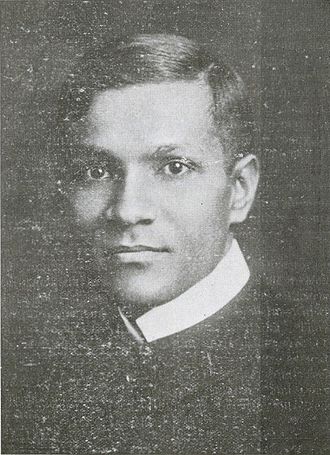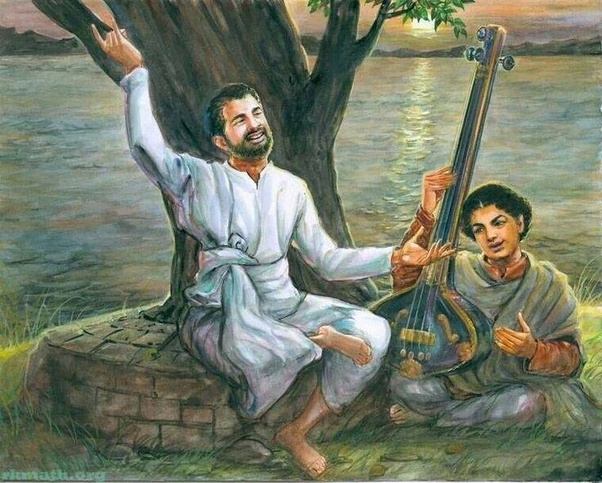Professor Benoy Kumar Sarkar was a versatile genius with an original vision of his own. A Bengali by birth, he transcended the limits of his country and culture, thoroughly became cosmopolitan in outlook and knew the actualities of Asia and Europe in their fundamentals as few.
Ramakrishna cannot be identified with the movement for any particular Hindu gods, rituals, religions, scriptures or institutions. Ramakrishna did not promulgate a religion. … No set of commandments and duties or virtues and vices can be discovered in Ramakrishna’s Kathamrta (‘The Nectar of Words’). It would be difficult also to discover in Ramakrishna’s teachings any advocacy or propaganda in regard to caste reforms, race-uplift and other social questions. And as for the questions of constitutional progress, nationality, provincial autonomy, federation, democracy, socialism or the like, Ramakrishna had no message whatsoever.
Where then, lie Ramakrishna’s claims to recognition by East and West as a world-teacher or as a re-maker of religion? They are to be found in some very elemental characteristics.
Ramakrishna used to function as guide and friend to all and sundry in regard to the most fundamental questions of daily life. He spoke to individual men and women of flesh and blood and tried to evoke in their personalities just those human qualities which enable persons to flourish in the world. In the East as well as the West, human beings—the richest and the poorest, the expert and the layman, the businessman, the scholar, the lawyer, the peasant and the workingman—all are at times subject to diffidence in the concerns of the day-to-day round of duties. Ramakrishna’s teachings enable the meanest of human beings as well as the mightiest to combat diffidence and acquire selfconfidence in the pursuit of life….
The Gospel of Strength. Ramakrishna has delivered a gospel of strength with which human beings can overpower the thousand and one frailties of worldly existence. That is why Ramakrishna has been accepted as a Teacher by merchants, industrialists, menial servants, government officials, lawyers, medical men, scholars, persons belonging to the most varied professions. Ramakrishna has, therefore, become a prophet for every corner of the globe. …
…In his sociology or metaphysics of values jiva (man) = Siva (God). The formulation of this equation by Ramakrishna enables us to establish an identity between service to man and service to or worship of God. We are again and again rendered conscious that he was not constructing a ‘kingdom that is not of this world’. This is the most marked characteristic in the sayings of Ramakrishna. He was a positivist, a teacher of worldly duties in the most emphatic sense. On the other hand, Ramakrishna’s perpetual emphasis on the spirit and the soul is epoch-making. He has taught mankind that with this instrument men and women can demolish the discouraging conditions of the surrounding world and transform them in the interest of the expansion of life. … The freedom of personality is a concept by which Ramakrishna has succeeded in electrifying the mentality of the middle classes, the higher classes, and the lower classes of the human society. Anti-defeatism and world-conquest have entered their soul as permanent categories in an unobtrusive manner.
* * *
The diversity of paths in the moral world does not frighten him (Ramakrishna). It is rather the fundamental ground-work in his analysis of human behaviour. As a true servant of man he is profoundly convinced of the dignity of individual manhood and personality.
…Ramakrishna’s faith in the dignity of man enables him thus to welcome the exponents of every faith as the builders of and travellers on the most diverse roads to reality, light and immortality. …
Every cheminot or wanderer on all these most heterogeneous roads is to him a colleague and fellow-priest in the temple of man’s struggle towards higher and higher flights of freedom. …
Ramakrishna is a believer in the equality of faiths. … He has established the democracy of religions. His conceptions of religious democracy and spiritual equality are organically linked up with his ideals of the fullness of life. …His mind is bent on recognizing the claims of the not-self, the other I’s or we’s and on establishing a harmony between the self and the not-self.
His philosophy of life’s fullness, based as it is on this sympathy with the urges and requirements of the not-self, the others, the duality or the plurality, is not confined to the reactions and demands of the individual personality alone. … Ramakrishna would have applied this maxim of dual, multiple or complex personality to each and every group of men as well as to all inter-human forms, inter-group relations, and intercommunal moralities.
Ramakrishna’s religion of life does not consider itself to be adequate and complete until it has granted a franchise of selfexpression and self-direction to the creative urges, morals and spiritual experiences of the ‘other groups’—new races, strange faces, the minds of the great not-self. … Nobody in the world’s culture-history and philosophical annals has been a more pronounced architect of the republic of religions than Ramakrishna.

